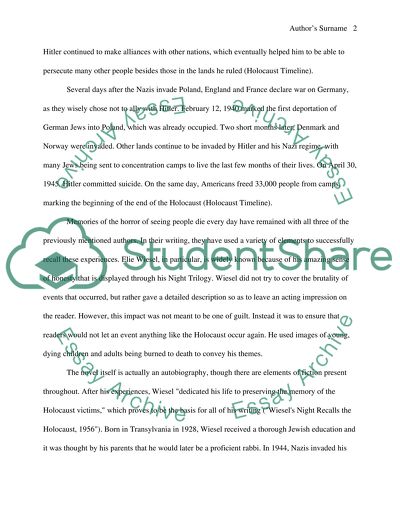Cite this document
(“Literature on Holocaust Essay Example | Topics and Well Written Essays - 2250 words”, n.d.)
Retrieved from https://studentshare.org/miscellaneous/1500284-literature-on-holocaust
Retrieved from https://studentshare.org/miscellaneous/1500284-literature-on-holocaust
(Literature on Holocaust Essay Example | Topics and Well Written Essays - 2250 Words)
https://studentshare.org/miscellaneous/1500284-literature-on-holocaust.
https://studentshare.org/miscellaneous/1500284-literature-on-holocaust.
“Literature on Holocaust Essay Example | Topics and Well Written Essays - 2250 Words”, n.d. https://studentshare.org/miscellaneous/1500284-literature-on-holocaust.


